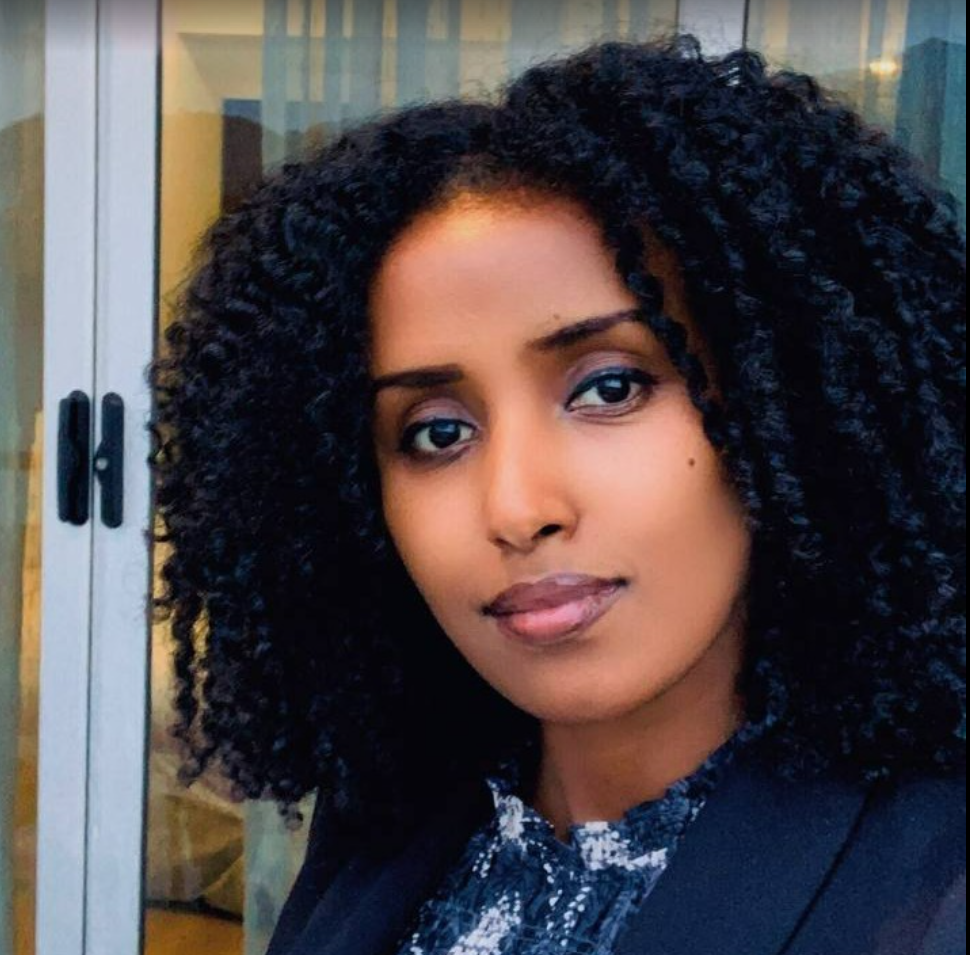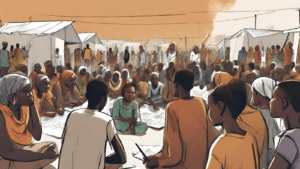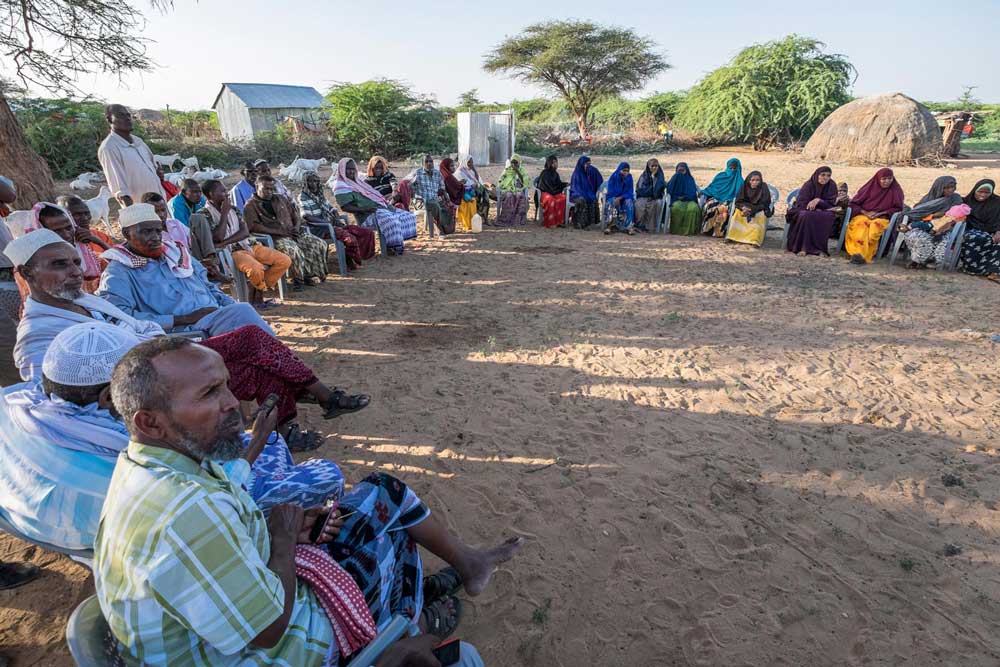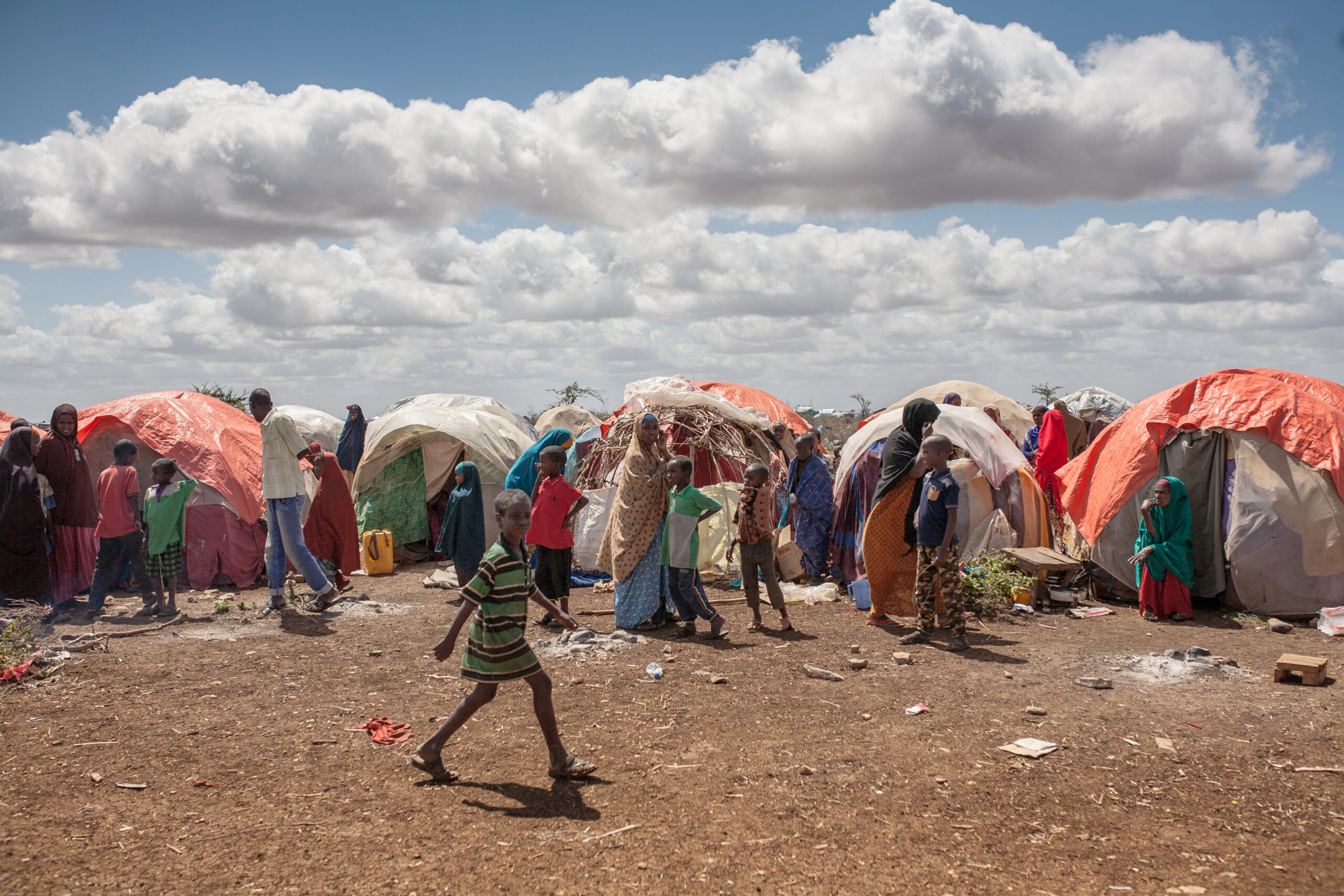On February 6, 2024, the Regional Durable Solutions Secretariat (ReDSS) hosted a workshop at the Saro Maria Hotel in Addis Ababa, Ethiopia. This event, part of a project supported by the Hilton Foundation, brought together urban refugees, implementing organizations, local civil society organizations (CSOs), UN agencies, and government bodies. The workshop aimed to bring together a diverse range of stakeholders to discuss and explore potential partnerships and support mechanisms that could enhance durable solutions for urban refugees in Addis Ababa.
Key Workshop Highlights
1. Draft Study Paper Presentation
A central focus of the workshop was a draft study paper titled “Promoting Durable Solutions for Urban Refugees in Addis Ababa.” Authored by ReDSS as part of the Hilton Foundation project, the paper was presented by Alemu Asfaw, the ReDSS national consultant, with support from the ReDSS Ethiopia team.
The study assessed current policies and programs related to urban refugees. It gathered data and evidence on ongoing efforts to support this population, identifying key gaps, lessons learned, and challenges in urban refugee programming. Importantly, the study also offered recommendations for addressing these gaps, encouraging urban partners to design programs with a solutions focus.
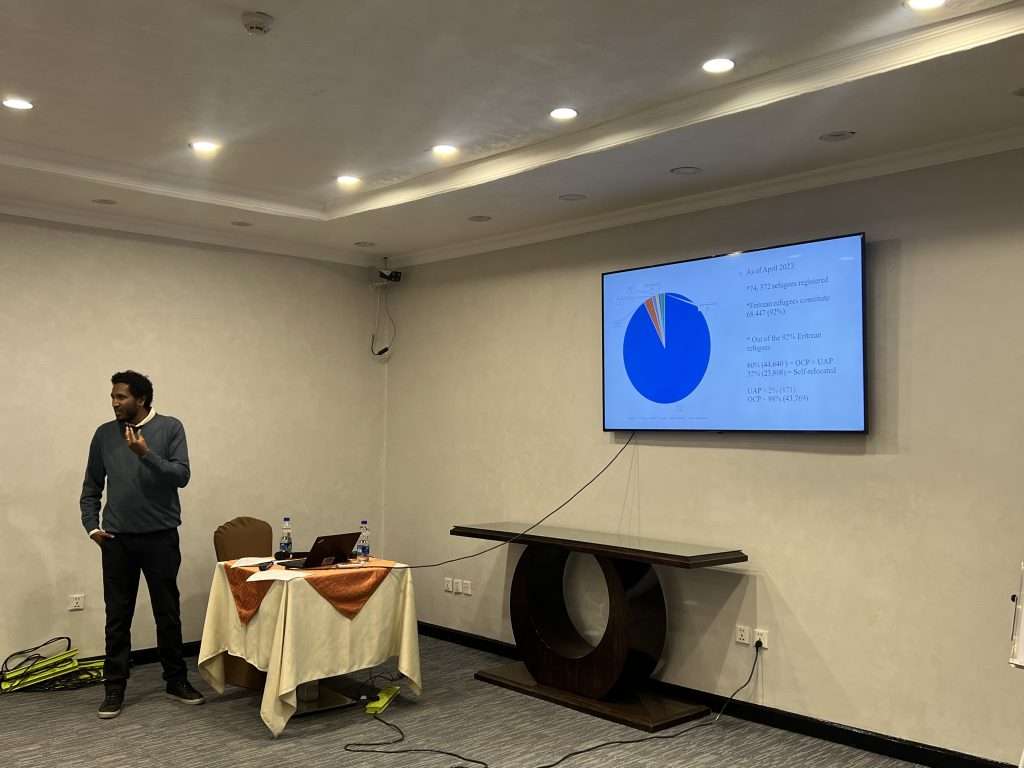
Alemu Asfaw makes a presentation of the findings from the report to the participants during the workshop.
2. Five-Year Strategy and Coordination Platform
The workshop’s second half explored the Five-Year Strategy document for Urban Refugees in Addis Ababa (2024-2029). Presented by the Refugee and Returnee Service’s (RRS) Urban Team, this document aims to improve the well-being, protection, and integration of urban refugees within the city.
Additionally, RRS introduced the Terms of Reference (ToR) for establishing an Urban Refugee Multi-Sectorial Coordination Platform. This platform’s primary objective is to foster stronger collaboration and coordination among stakeholders. By working together, they can identify and address gaps and challenges in urban refugee programming, ultimately enhancing the effectiveness, efficiency, and impact of interventions.
During the workshop, ReDSS also provided feedback on the Five-Year Strategy and Urban Refugee Multi-Sectorial Coordination Platform documents. Their focus was on how ReDSS can best support the initiatives led by RRS. This collaboration is crucial for ensuring that the strategy and platform are effectively implemented and achieve their goals of improving the lives of urban refugees in Addis Ababa.
Key Takeaways and Highlights
This participatory forum yielded several significant insights and takeaways:
- Enhanced Collaboration: The forum highlighted the importance of collaboration between urban refugees and various stakeholders in addressing the challenges they face.
- Focus on Solutions: Discussions emphasized the need for a solutions-focused approach to urban refugee programming, addressing key gaps and challenges to develop effective and sustainable interventions.
- Empowering Urban Refugees: The forum provided a platform for urban refugees to actively engage, raise questions, and seek solutions to the issues directly affecting them. It underscored the importance of empowering urban refugees by providing them with relevant technical guidance, resources, and support to improve their well-being, protection, and integration within urban settings.
- Advocacy and Policy Support: Participants discussed the critical role of advocating for policies to be effectively implemented at the ground level, ultimately influencing solutions for urban refugees.
Overall, the workshop served as a valuable platform for sharing insights, fostering collaboration, and identifying actionable steps to improve the situation of urban refugees in Addis Ababa. ReDSS is committed to continuing its collaboration with all stakeholders involved, including urban refugees, implementing organizations, CSOs, UN agencies, and government bodies.
